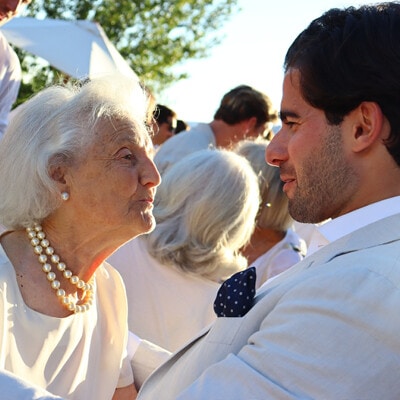
Guest blog from Antonio Ribeiro, Founder of Yurtle
Why is Yurtle obsessed with longevity and caregiving?
Simply put, I cannot think of a problem more worth solving than how our world adapts to its rapidly ageing population (the fallout of climate change is the one that comes closest). Allow me to elaborate…
On a personal level, I have seen first-hand the strain caregiving can impose on families. My grandfather received family and professional support in his battle with ALS, and my grandmother today leans heavily on family in her battle with age related frailty and vascular dementia.
On an intellectual level, the demographic puzzle we’re solving is fascinating. The headline note is that the number of people in older age is growing much faster than younger people. The number of people aged 65+ is growing at twice the rate of younger age groups.
By 2025, more people will be caring for an elderly relative than a child.
Who cares
In short, because of the Old Age Dependency Ratio (OADR). This ratio compares the number of people of a pensionable age for every 1,000 people of working age. This is projected to rise from 305 in mid-2016 to 370 by mid-2041 according to the Office for National Statistics.
As a society, we have built work, education, health, and pensions institutions that presuppose that there are more young people than older people. More than that, these institutions have been built on the assumption that the average person will spend 20 years of early life in education (honing their skills), the next 35-40 in work (monetising their skills), and finally the last 10 years in retirement (reaping the reward of monetisation). Our prevailing social model is to have those of working age pay the way for those of non-working age.
The “maths” of society has been done assuming we will live much shorter lives than we are projected to do today. Society has in part been able to balance its books to date because of its high rate (relatively speaking) of reproduction. For various reasons, people today are choosing to have fewer children (or to meaningfully delay it), applying further pressure to the all-important OADR.
We need to react and react quickly.
Whilst having loved ones around for longer is something to be celebrated, there is a persistent 10-year gap between lifespan (years of life) and health span (years in good health). This gap results in a dependence on family, friends, and communities to meet their daily needs. Many of these people are not well-equipped to thrive in this role today, having never experienced the role of caregiving before. They are in desperate need of support to avoid burnout,ill health and financial strain.
That is where Yurtle comes in. To date, the insurance industry has focused on the health of the care receiver through interventions such as long-term health insurance. For various reasons relating to elevated anti-selection risks, that product has had limited impact. Yurtle instead focuses on caregivers – A more insurable population, who today are left completely unsupported by insurance in this area.
Yurtle’s journey so far
Yurtle was born at the start of the Coronavirus pandemic at a time where social isolation and anxiety about the health of vulnerable loved ones were at their peak.
Covid-19 left the social care sector in disarray but also pushed it into the limelight. At Yurtle we initially planned to distribute a direct-to-consumer product through care homes and retirement villages. The aim was to support caregivers in providing symptom relief for individuals living with dementia. Our chosen sales channels became unpopular very quickly thanks to infection risk. With that came a meaningful pivot for our business model and product. Whilst this was somewhat painful, it helped us home in on a gaping whitespace in the insurance sector.
Given the limited time and spending power of caregivers, we needed to find an entity with purchasing power that cares about the wellbeing of carers.. That’s when it struck us. The only entity more concerned about carers being overwhelmed – struggling mentally, physically and financially – are the companies dependent on their labour and productivity. Once we fully appreciated this, we got to work on our existing product, an employer paid employee benefit that alleviates caregiver burnout.
Since then we have come on leaps and bounds, securing meaningful distribution partnerships with leading employee benefits consultancies, group risk providers, and securing our first corporate clients.
Our vision for the world
2 in 3 people over the age of 55 prefer to age and die in their own home. Yurtle’s vision is to give everyone the choice to live independently in an ageing world.
In order to do so, we must empower informal social care networks to deliver care support in a sustainable and effective manner. This means helping people build out resilient care teams where individuals feel valued and seen for the support they provide.
In a world that is rapidly ageing we should expect a widening of the gap between supply and demand of paid professional care. Families will continue to fill the void left by public provisions.
Yurtle envisages a world where caregiver insurance and support becomes as mainstream as health insurance is today in workplaces.
Our partnership with Insurtech Gateway is a key enabler to making this a reality given their role in supporting our insurance infrastructure as a strategic partner.
A note from Insurtech Gateway
“Thank you so much for sharing your story Antonio, we are proud to be supporting a venture addressing one of societies biggest challenges. At Insurtech Gateway we are always eager to meet mission driven founders – like Antonio. If you have a big idea and are ready to change the world, we have the experience and the tools to help you launch and scale faster. Check out our incubator and venture fund or get in touch.”